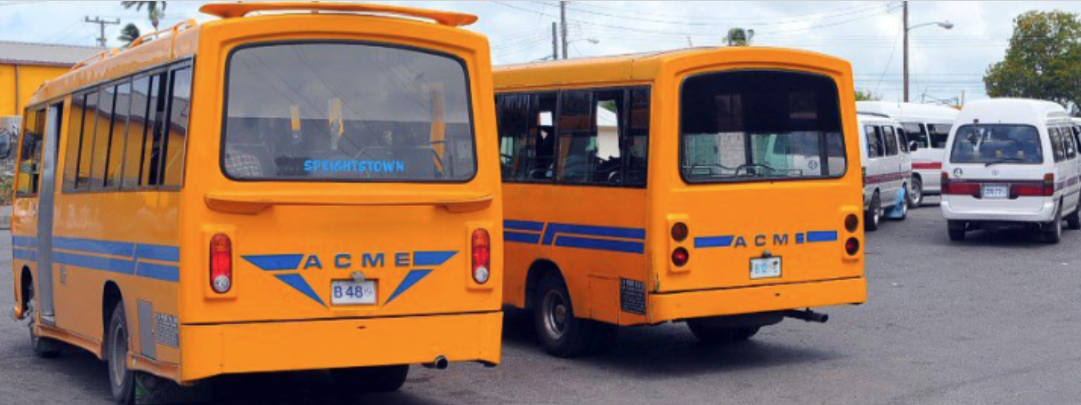Press Release from Association of Public Transport Operators (APTO)
When the Association of Public Transport Operators (APTO) and the Alliance of Owners of Public Transport (AOPT) held discussions with Government in July last year about the poor financial condition of the PSV sector, specifically minibuses and route taxis, they presented a case for an increase in the bus fare charged to commuters, citing the steady increase in operating costs since the previous increase in January 2011 and in particular, the additional heavy financial burden placed on the sector by the introduction of the fuel tax of forty cents per litre on diesel in July last year.
At that meeting, Government’s position was that while it understood the need for a fare increase, it was not prepared to grant any increase in bus fare unless measures were put in place to halt the indiscipline of PSV operators on the roads and the flouting of traffic laws. Government identified the competitive conditions of operation of the sector, created by the lease payment and the percentage payment systems in use as the major causes of this indiscipline and suggested that order on the roads among PSV operators could not be achieved unless those payment systems were eliminated and a flat pay system instituted. The representative associations were tasked to present proposals to Government whereby discipline on the road by PSV operators could be achieved as a condition of an increase in bus fare.
At that meeting, the representatives of the sector had originally presented a case for an increase in the fare to $3, but after hearing the Government’s conditions, including a flat pay system, put forward that it would only become financially viable if the bus fare was set at $3.50.
In response to Government’s challenge to the sector to justify the requested increase in bus fare not only from a financial perspective, but from that of effecting the required change in the behavior of PSV operators on the road, the two representative owners’ associations on, 16th August 2018, jointly submitted a suite of proposals, designed specifically to achieve the latter. Those proposals included inter alia:
- The implementation of a cashless fare collection system, which would transfer control of the business’ income from the operators to the owner.
- The introduction of a flat pay system for operators, which would remove the competitive element. Operators would become subject to a structured and controlled earnings environment, to the benefit of the NIS and PAYE collection agencies.
- The banning, by law, of audio amplification equipment from PSV’s.
- The banning, by law, of musical air horns.
- The enforcement of the wearing of an agreed uniform.
- Drug and alcohol testing for operators.
- Training in customer service as a prerequisite to obtaining a PSV driver or conductor license.
- Documented evidence of satisfactory performance to support badge renewals.
- The implementation of a demerit point system.
Collaboration between the Transport Board and the PSV representative associations in the implementation of a cashless fare collection system was discussed and it was agreed that a joint launch of the system would be desirable.
For months, despite follow up letters in September and December, 2018, there was no response from Government until, to everyone’s surprise, the increase in the fare to $3.50 was announced, with effect from 15 April 2019, without any of the provisions made in the PSV representatives’ proposal being put in place.
In the period between August 2018 and 15th April 2019, Government had put out a tender for the supply to the Transport Board of between 120 and 180 electric powered buses “on a revenue sharing basis”. It was subsequently announced that an agreement had been reached with a private sector entity for the supply of these vehicles and that the Transport Board, as a result of that agreement, would cease to be an owner and operator of motor omnibuses, but would assume a regulatory function.
Government increased the fare unilaterally, without any further consultation with the private sector owners of PSV’s or without putting in place any of the arrangements it had proposed and to which PSV owners had agreed, to stem the indiscipline on the road. The indiscipline on the road therefore continues unabated as the status quo between owners’ demands for an increased daily lease amount and the operators’ expectation of an earnings increase as a result of the increased fare remains, along with the competition among operators on the percentage payment system.
Meanwhile, commuters justifiably feel aggrieved at what is considered an unreasonable fare increase with no commensurate improvement in the quality of service provided and PSV owners and operators, as a result, continue to be vilified, subjected to constant criticism by the general public and increasing legal censure by Government for the continuation of the flouting of traffic laws by PSV operators and what has become known as the ZR culture, because of what is essentially a Government failure to implement agreed changes in the operations and regulation of the sector.
Public Service Vehicle owners cannot continue to take all the blame in silence.
Related Link:





Leave a Reply to Piece the LegendCancel reply